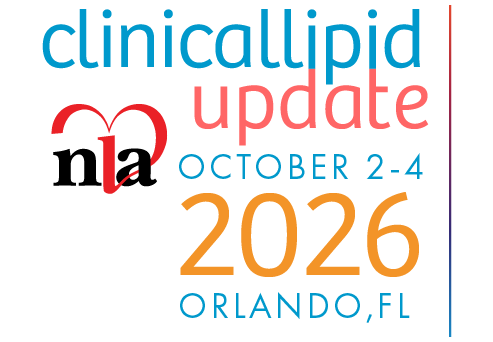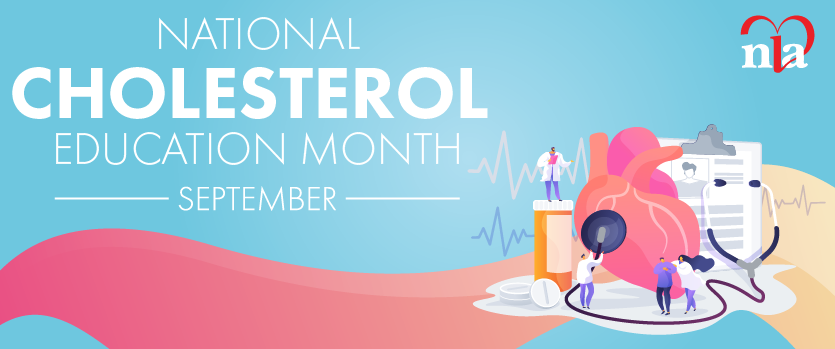Fall 2014 LipidSpin Articles
 TERRY A. JACOBSON, MD, FACP, FNLA |
From the NLA President: Making Waves“Knowing is not enough; we must apply. Willing is not enough; we must do.” – Johann Wolfgang von Goethe Being a part of the National Lipid Association is about more than just raising awareness about lipid disorders — it’s about effecting change within our communities and across the country. One of the ways the NLA has succeeded in doing this is through national campaigns geared toward promoting our organization and bringing attention to topics of great interest to... more |
 KRISHNASWAMI VIJAYARAGHAVAN, MD, FACC, FNLA |
From the SWLA President: Make Your Voice HeardGreetings! I was honored and excited to be nominated as the President of the Southwest Lipid Association (SWLA) at the National Lipid Association’s (NLA) Annual Scientific Sessions in May 2014. As we acknowledge the team that have been at the executive level and performed with high energy, we would like to tap into their continued support. This year, we plan to move forward with exuberance in creating new strategies for our continued growth. We intend to implement Million Hearts in early... more |
 ROBERT A. WILD, MD, MPH, PhD, FNLA |
Letter From the LipidSpin Editors: Guidelines: What Are They? What Can They Do? What Can They Not Do?The following are some basic thoughts and information on guidelines based on my understanding. Guidelines aim to guide decisions and criteria for diagnosis, management, and treatment. They have been around for the entire history of medicine. They are now supposed to be based on an examination of all the current evidence within the paradigm of evidenced based medicine (EBM). A healthcare provider is obliged to know the medical guidelines of his or her profession and has to decide... more |
 KRISHNASWAMI VIJAYARAGHAVAN, MD, FACC, FNLA  TOM HAFFEY, DO, FACC, FNLA |
Clinical Feature: The Triglyceride Enigma“With crown and mace and disc, a mass of effulgence gleaming everywhere, I see thee so dazzling to the sight, bright with splendor of the fiery sun blazing from all sides — incomprehensible!” ~ Translated from Chapter 11, Verse 17, Bhagavad Gita Introduction |
 RAJASREE PAI RAMACHANDRA PAI, MD |
Guest Editorial: Current ACC/AHA Guidelines Regarding HypertriglyceridemiaThe American College of Cardiology (ACC) and the American Heart Association (AHA) — in collaboration with the National Heart, Lung and Blood Institute (NHLBI) — published their evidence- based hyperlipidemia guidelines on the treatment of blood cholesterol to reduce atherosclerotic cardiovascular diseases (ASCVD). Even though this major guideline revision after the Adult Treatment Panel III report in 2002 has some unique aspects, such as including stroke as a cardiovascular outcome and... more |
 PIERS R. BLACKETT, MD, FNLA  CATHERINE MCNEAL, MD, PhD, FNLA  DON P. WILSON, MD, FNLA |
EBM Tools for Practice: Triglyceride and Atherogenic Dyslipidemia in AdolescenceModerate elevation in triglyceride in the <500 mg/dl range frequently presents in children and adolescents,1 and is among risk factors associated with autopsy- proven atherosclerosis,2 whereas severe hypertriglyceridemia leading to pancreatitis is less common than in adults. Children with moderately high triglyceride levels have a characteristic clinical presentation — with obesity, a family history of type 2 diabetes, or the metabolic syndrome — and represent a... more |
 SCOTT SHURMUR, MD, FNLA |
Lipid Luminations: Whither Fibrates?The role of fibrates in treating patients with hyperlipidemia remains controversial.1-3 Recent randomized clinical trials of fibrates, alone or in combination with statins, have been inconclusive.4,5 Fibric acid derivatives exert favorable lipid effects through the ligand-dependent transcription factor PPARα, which can regulate multiple target genes.6 Mechanistically, fibrates have been shown to induce lipoprotein lipase transcription7,8 and reduce hepatic apo-CIII production.9-11... more |
 JOSEPH L. LILLO, DO, FNLA, CPI |
Specialty Corner: Disorders of the Triglyceride-HDL Axis in Insulin ResistanceDisorders of the triglyceride-high-density lipoprotein (TG-HDL) axis, i.e. high TGs and low HDL cholesterol (HDL-C), are well documented in the medical literature,1 and are of particular importance to clinicians treating patients who are insulin resistant (IR) or who have diabetes mellitus (diabetes). We all see this in clinic ever y day, because there are now approximately 115 million Americans who are IR or who have diabetes.2 As I speak to colleagues in my... more |
 DONALD G. LAMPRECHT, PharmD, BCPS, FNLA, CLS  LISA J. SCHWELLENBACH, PharmD, BCPS |
Practical Pearls: Lowering Triglycerides with Omega-3 Fatty AcidsApproximately 27 percent of adult Americans have elevated (≥ 150 mg/ dL) fasting triglycerides (TG).1 This commonly encountered dyslipidemia is an important indicator of the presence of atherogenic lipoprotein particles and may be considered a modifiable risk factor for cardiovascular disease.2 While genetic defects are responsible for familial forms of hypertriglyceridemia, secondary causes of hypertriglyceridemia often can be attributed to dietary factors (e.g. very... more |
 Amita Maturu, MD  Lisa Forman, MD, MSCE  James M. Falko, MD, FNLA |
Case Study: Type III Hyperlipidemia Unmasked by Biliary CirrhosisIntroduction |
 KARI UUSINARKAUS, MD, FAAFP, FNLA  KRISHNASWAMI VIJAYARAGHAVAN, MD, FACC, FNLA |
Chapter Update: Challenges and Opportunities in Increasing SWLA MembershipGreetings from the Southwest Lipid Association (SWLA)! Our geographic region extends from the gulf shores of Louisiana to the mountains of Colorado. It also includes vast open spaces in Texas, New Mexico, and Wyoming, along with the deserts of Arizona and the plains of Oklahoma. Because it is such a diverse region, it can be a challenge to address the needs of all clinicians involved in the field of lipidology. The educational and day-to-day practice needs of a dedicated full-time... more |
 THOMAS HAFFEY, DO, FACC, FACOI, FNLA |
Member Spotlight: Thomas Haffey, DO, FACC, FACOI, FNLADr. Thomas Haffey’s passion for lipids shows in his dedication to the field. As a practicing cardiologist, he spends his days splitting time between seeing patients — a large part of which are dealing with lipid problems — and running research projects at North Suburban Medical Center. Out of office, he dedicates his time to the field of lipidology as well. Dr. Haffey currently sits on the Quality Assurance Committee of the American College of Cardiology, the Governor’s ST-Elevation... more |
 ANNE C. GOLDBERG, MD, FNLA |
Foundation UpdateThe Foundation of the National Lipid Association (FNLA) has been hard at work in the past few months, and we have many new initiatives and accomplishments to show for it. Most recently, the FNLA helped launch an awareness campaign centered on elevated triglycerides and the role they play in a patient’s life. The “What’s Your Number?” campaign kicked off in conjunction with September’s National Cholesterol Education Month, and encouraged patient education and discussion about lipid... more |






.jpg)
.png)










